More Like Communisn’t!
A pirate in shining armour, capitalism rode to the rescue, camera crew and cruise ships in tow.
Happy Friday!
And greetings from I don’t know where. As promised, this newsletter was scheduled last week. Hopefully nothing awful has happened and my emailing you like this is still totally fine.
Welcome to edition 334.
👋 My name is David and I’m a writer, outdoor instructor and cyclist-at-large with Thighs of Steel. I write stories that help you and me understand the world (and ourselves) a little better.
Today’s story is part two of last week’s little tale, so you might want to go back and catch up on that / refresh your memory before…
Room Service & The End Of The End Of History (Part II)
We finished the first half of the story on the cusp of making the big mistake of blaming an ahistorical socioeconomic system for the sharp contrast between two hotels only five minutes and three decades apart: the Sheraton and the Pelegrin.
More Like Communisn’t!
At the end of the eighties, the story that many people in Western liberal democracies told themselves was of the final triumph of Western liberal democracy.
As political scientist Francis Fukuyama wrote in 1989:
We may be witnessing not just the end of the Cold War, or the passing of a particular period in postwar history, but the end of history — that is, the end point of mankind’s ideological evolution and the universalization of Western liberal democracy as the final form of human government.
A bold claim, but — to be fair to Fukuyama — one more or less supported by newsreels.
Even the market socialism of Yugoslavia, where companies were held cooperatively in competition with each other, had been successful only for so long as partizan Nazi killer, benevolant tyrant and war criminal Josip Broz Tito could hold the republics together through sheer cult of personality.
As Tito’s health ailed, decades of economic growth faltered and crashed. A chap called Slobodan Milošević took over the presidency of Serbia, one of the six Socialist Republics of Yugoslavia, with a rigorous programme of Serbian nationalism.
It really didn’t go well.
Although Croatia declared independence from the Socialist Federal Republic of Yugoslavia on 25 June 1991, the War of Independence only ended in 1995.
25,000 people were killed and over half a million displaced.
Ten kilometres up the coast from Kupari, Dubrovnik had been under siege for seven months of said war and more than half of the buildings in the famous old town were shelled and damaged or destroyed.
At the end of the conflict, UNESCO led a frighteningly successful mission to restore Dubrovnik to its former glory. The mission cost $80 million: money well spent for the million or more tourists who tramp those Hollywood walls every summer.
Like a pirate in shining armour, capitalism rode to the rescue, camera crew and cruise ships in tow.
The hotels at Kupari had also been subject to vicious shelling but, without the protection of thick medieval walls, their expensively assembled interiors were also ransacked and looted by the Yugoslav People’s Army.
Again, without the protection of heritage-worthy medieval walls, there was no post-war international restoration at Kupari.
As of August 2022, it looks like an investor has been found, for at least part of the complex.
The Hotel Grand, designed in classic Belle Époque style, is the earliest and most appealing of the hotel husks and, during my visit, its perimeter was surrounded by electric wire, keep out signs and portaloos.
A team of men were busy blowtorching something in one corner, while a team of women on ladders were touching up the paintwork of the epicerie and boulangerie, incongruous among the wreckage.
Incongruous for good reason, it turns out. As a more savvy friend quickly realised, this is obviously the conveniently dressed set of a World War film set in occupied France.
There's something uncomfortable in the repurposing of one country's historical wreckage for the lionisation of another's. But a profit is a profit.
The Dubrovnik Times reports that the Kupari site was purchased in 2016 by Avenue Group, to be converted into a five-star resort managed by, yep — you guessed it — Marriot, owners of the Sheraton brand and the world’s largest hotel corporation, with enough bedspace to rehome the entire urban population of Buenos Aires, Chicago or Paris.
That evening, with the last of the sunlight shining clean through the building, it’s easy to imagine the Pelegrin lit up by holidaymakers.
Whether it's hotels or Hollywood, maybe, even here at Kupari, capitalism will yet ride to the rescue once again. Perhaps the restoration of failed ideologies is the moneylenders burden.
But the mistake would be to assume that the story of civilisations is over: that this capitalist culture, by fluke or by nuke, has somehow won history and will sail ever on into the future, unperturbed by ruffles on the water.
There’s a brand new bridge just up the coast that puts a pin in that balloon right away.
Bridges Over Borders
Dalmatia is divided.
In the Treaty of Karlowitz of 1699, the Ragusa of Dubrovnik ceded territory north and south of their city to the Ottoman Empire in a pretty lame attempt to forestall a land invasion by their arch enemies: the Venetians.
It kinda worked actually and so this treaty of convenience ended up being the basis for the modern border between Croatia and Bosnia and Herzegovina.
Zoom in close on a map of the Dalmatian coast and it looks as if Bosnia and Herzegovina is dipping a toe into the Adriatic.
This tiny scrap of land, known as The Corridor Of Neum, stuck stubbornly to the sole of history, turns Župa Dubrovačka into an exclave.
Although it tosses Bosnia and Herzegovina a lifeline to the Adriatic Sea, it cleaves Croatian Dalmatia in two, with multiple border crossings for anyone travelling the coast.
At least, that was the case until the opening in July 2022 of Pelješac Bridge, a 2.4km cable-stayed bridge across the Neretva Channel that connects Dubrovnik with the rest of the country.
By diverting traffic onto the peninsula of Pelješac, it’s now possible to avoid Bosnia, The Corridor Of Neum and those pesky border crossings altogether.
But what on earth has this bridge got to do with the end of the end of history?
Well. This is where the ball of thread starts to wind itself up in knots, but let’s see if I can break it down in three easy bullet points:
The Corridor Of Neum, being located in Bosnia and Herzegovina, is not in the EU
The rest of the Dalmatian coast, being located in Croatia, is in the EU and is scheduled to join the single currency Eurozone in 2023 and the free movement Schengen Zone in 2024
The Corridor Of Neum, being located in Bosnia and Herzegovina, is not in the EU
Pre-Schengen and pre-Eurozone, traffic between the Dubrovnik exclave and the rest of Croatian has two border crossings to make. Faff, but doable faff.
Schengen will turn two border checks into three as EU customs officials are as curious about what leaves the Eurozone as what arrives.
That’s one whole new level of faff and, having kinda worked actually for 300 years, the Corridor Of Neum is now just a bit much.
So, in 2007, the Croatian government decided to build a nice bridge, linking the Croatian mainland with a Croatian peninsula that conveniently protrudes up the coast from the other side of Bosnian Neum.
A new motorway would then carry traffic around Bosnia’s toe-dipping territory and The Corridor would be no more (except for bicycles).
They could’ve put on a ferry or turned The Corridor Of Neum into a hyper-surveilled, no exit highway, but they went for the nice bridge idea.
A nice bridge that would cost a nice lot of money.
Nevertheless, this was 2007 and optimism was in the air. The Croatian government barrelled on with the expensive bridge idea and, in September of that year, announced that the tender had been won by a Croatian construction consortium, led by a company with the quaintly amusing and very on-the-nose name: Konstruktor.
The bridge was due to be completed four years later, in 2011. Blah, blah, blah, global financial crisis, etc., tender cancelled and konstruktion terminated in May 2012.
Luckily, as it was kind of their problem, the EU were on hand with a nice lot more money — €357 million of it, in fact — and the bridge project went back out to tender in 2017.
But ten years is a long time in the story of civilisations.
This time the winning bid was from a corporation with a name so on-the-nose that, instead of being quaintly amusing, it’s downright sinister: China Road and Bridge Corporation.
They undercut the Austrian and Italian bids by about 20 percent — prompting complaints that the Chinese were ‘price-dumping’ and receiving state aid from their motherland in exchange for investment opportunities to expand Chinese influence in Europe.
But, six months ahead of schedule, the bridge is up and running. You cannot deny the facts on the ground. Croatia is happy. The EU is happy. China is happy.
Marine ecologists and Bosnians are not happy, but you can’t have everything.
The End Of The End Of History
Strange that this beautiful stretch of coastline has become, and has perhaps always been, a ley line of international mystery, a seam of conflict and opportunity, the hypoteneuse of a triangle between Europe, Russia and now China.
Sorry — did somebody mention Russia?
The collapse of the Soviet empire was exactly what prompted Francis Fukuyama to declare the ‘end of history’: back then, Western liberal democracy really had won.
Close up, it certainly looked that way to Fukuyama.
In 1989, the year that he made his famous declaration, the ideological contrast between East and West couldn’t have been sharper.
In the East the Berlin Wall fell, the culmination of a year of Communist collapse; in the West, Tim Berners-Lee invented the freakin’ World Wide Web.
In the same way, close up, the Sheraton and Pelegrin hotels stand today in sharp ideological contrast on the beaches of the Dubrovnik Riviera.
But step back a little, take a little perspective, and its not their differences, but their similarities that really stand out to me:
Right now, the Sheraton sparkles with polished glass while the Pelegrin crumbles. But it’s easy to imagine the opposite.
As I leave the Pelegrin, I notice, high up in the empty space between smashed windows, someone’s strung out a washing line and hung out a t-shirt and a bedsheet in the last of the sunshine.
A single chair is has been placed right at the edge of the seventh storey roof: a good seat for the storyteller to pause and ponder the past, looking out over the mountain cliffs and the ancient city of Cavtat, founded as Epidaurus in the sixth century BC by Greek colonisers.
This coastline, its history, the story of its civilisations, is a labyrinth.
Make Them Lunch Today
I’ll end by returning to where this story began last week: looking down at the hopeless ball of tangled thread in my hand, with no end in sight.
Let me explain why this is a wonderful thing.
I can sympathise with Francis Fukuyama’s original urge to bring an end to the story, but, in fairness to Fukuyama, I confess that I have made something of a straw man out of his argument.
As described in this March 2022 interview with The New Statesman:
Fukuyama is willing to admit mistakes. He said that when he wrote his thesis he perhaps didn’t fully appreciate the concept of “political decay: the idea that once you became a modern democracy, you could also go backwards”.
Oh, great. Thanks for that cold blast of optimism, Fran.
If you care to look for them, symptoms of political decay are everywhere in the tales of our history told today on news channels and social media.
But (and here’s something to hang your hat on) somehow, despite the ‘end of history’, the people of Russia and China have found a way into the year 2022.
So too have the people of Croatia, even the people who once took their holidays at Kupari.
So too have you and I.
What’s more is that I reckon a bunch of us, Russian, Chinese, Croatian or whatever the heck you call yourself, will make it to 2052 — no matter what happens.
Don’t trust people who try to draw lines under historical events. They’re just trying to spin you a story. You can always tell it another way, a way that leaves space for you to act, for you (yes — you!) to take the stage, enter the arena, and play.
It’s easy to be despondent about the history that rushes through our lives, but despondency is the equal and opposite to Fukuyama-esque triumphalism.
Make neither mistake and you’ll find that history with no end is a dreadful and empowering thing.
As I wrote last week, The Most Haunting Truth of Parenthood by Mary Laura Philpott is not really about parenthood.
It’s about the collapse of civilisations:
We cannot really save anyone. Not permanently. The safeguards we set up all fall away. … I cannot shield my beloveds forever, but I can make them lunch today.
This might be an anticlimactic end to 4,000 words of story, but at least my take on history is actionable: stop getting room service and make them lunch today.
The Lunch I’m Making Today Is A Bike Ride
It’s a charity bike ride that I might have mentioned a million times before, raising money in solidarity with refugees, migrants and asylum seekers.
It’s also a life experience for a hundred cyclists, a mobile and temporary autonomous zone with no borders, free movement and free minds for all.
Building a new civilisation from inside the husk of the old.
What lunch are you making for your beloveds?
100 Days of Adventure 2022
🟢🟢🟢🟢🟢🟢🟢🟢🟢🟢🟢🟢🟢🟢🟢🟢🟢🟢🟢🟢🟢🟢🟢🟢🟢🟢🟢🟢🟢🟢🟢🟢🟢🟢🟢🟢🟢🟢🟢🟢🟢🟢🟢🟢🟢🟢🟢🟢🟢🟢🟢🟢🟢🟢🟢🟢🟢🟢🟢🟢🟢🟢🟢🟢🟢🟢🟢🟢🟢🟢🟢🟢🟢🟢🟢🟢🟢🟢🟢🟢🟢🟢🟢🟢🟢🟢🟢🟢🟢🟢🟢🟢🟢🟢🟢🟢🟢🟢🟢⚪
Free But Not Cheap
That’s it for this week — thank you for reading all the way through.
Any comments, questions, insults to hurl my way? You can reply to this email like any other. My favourite correspondent last week described me as a ‘perverse horn-blowing imp of the ridiculous’.
This newsletter is supported, Patreon-style, by people who click the soothing purple-ish-blue buttons below. £30 per year gives me the means and motivation to keep on writing this little thing. Thank you 🙏
Three Small Things At The End
[JESUS NEWS] According to a series of stories called The Infancy Gospels, a young Jesus once turned children into piglets and killed a boy who knocked him over. ‘As thou has thrown me down,’ Jesus quipped, ‘so shalt thou fall, nor ever rise.’ Nice kid.
[TOP BAKERIES] Germany has the best bakers in Europe. French bakers don’t have anywhere near the same variation and creativity and are addicted to white flour, while in Italy they add the crimes of excess sugar and unreliable quality control.
[CUISINE SLAM] Don’t blame me for this one, but a friend took my bakery observations one step further: Italy doesn’t even have great cuisine, just great, fresh ingredients.
And with that bombshell…
Big love,
dc:


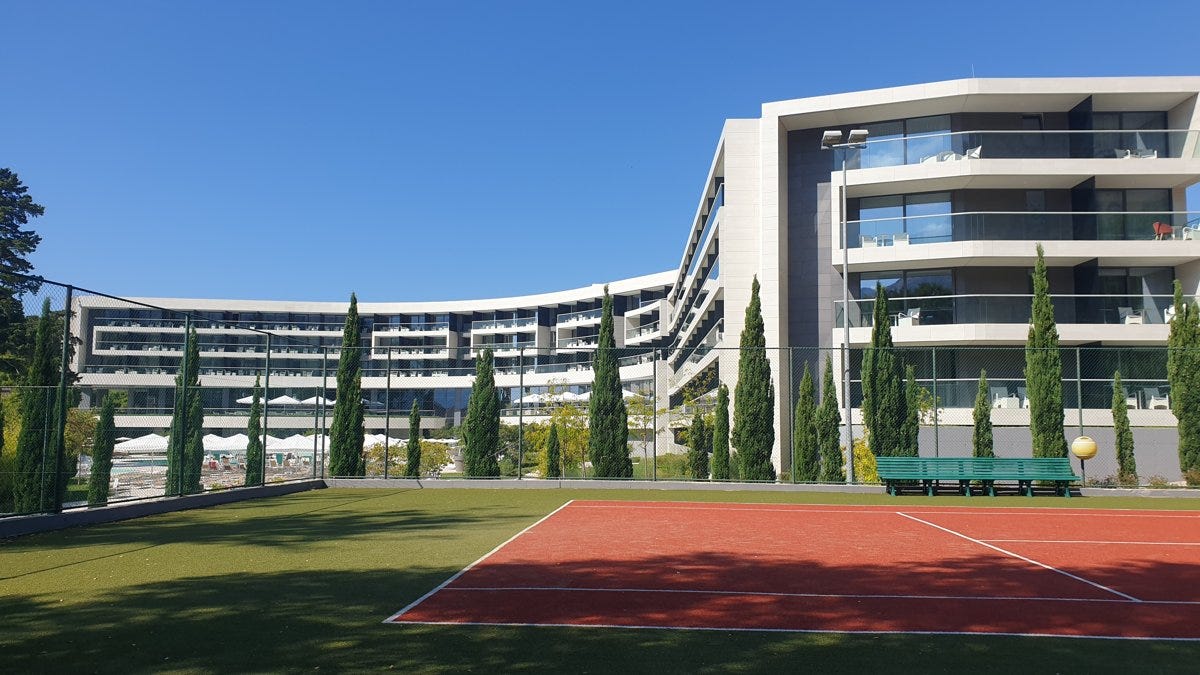
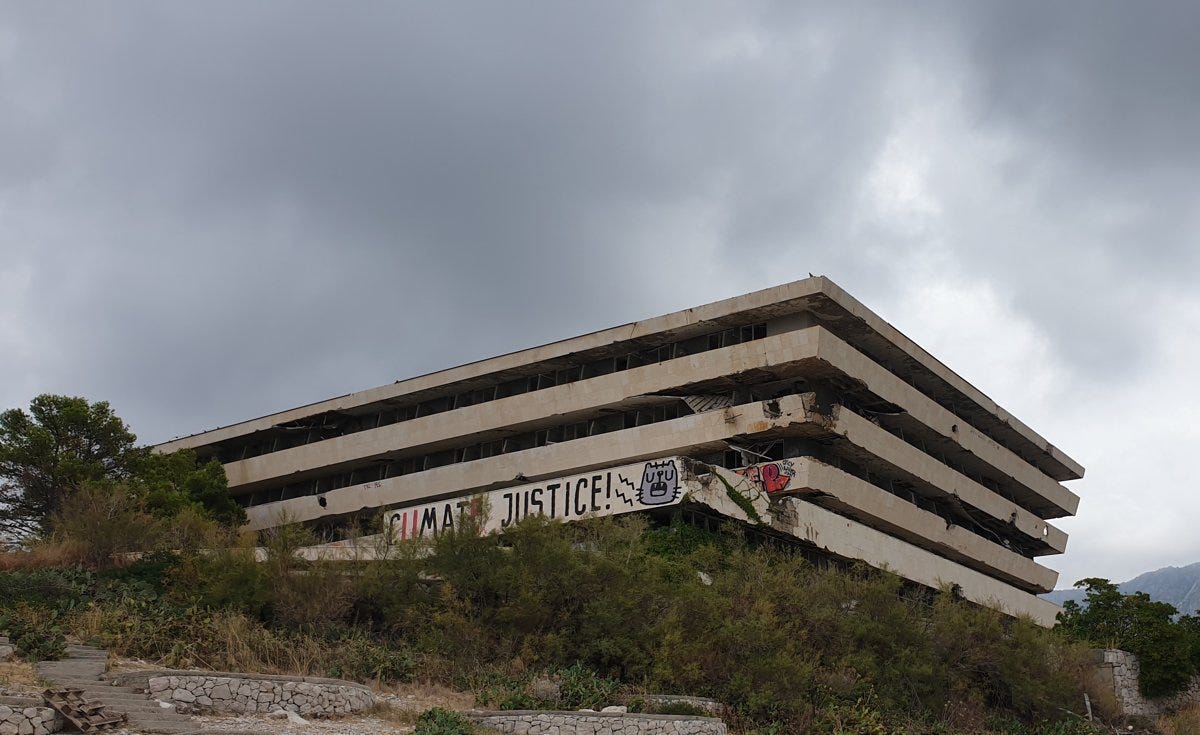
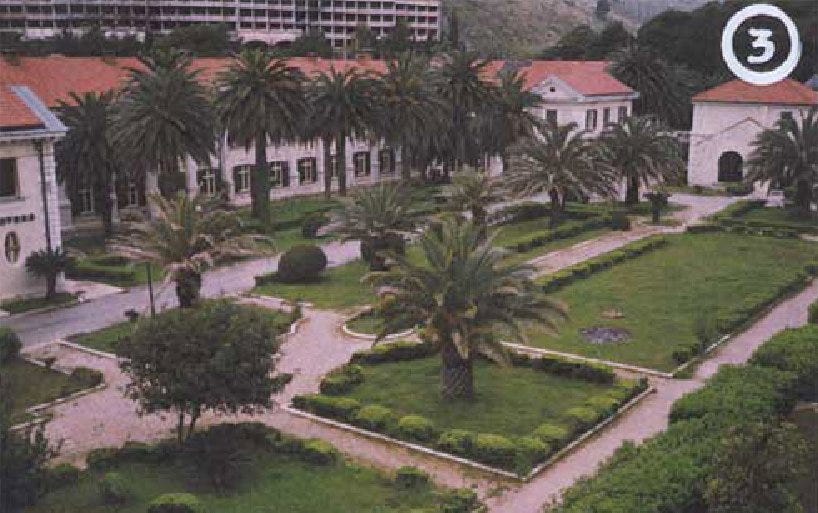
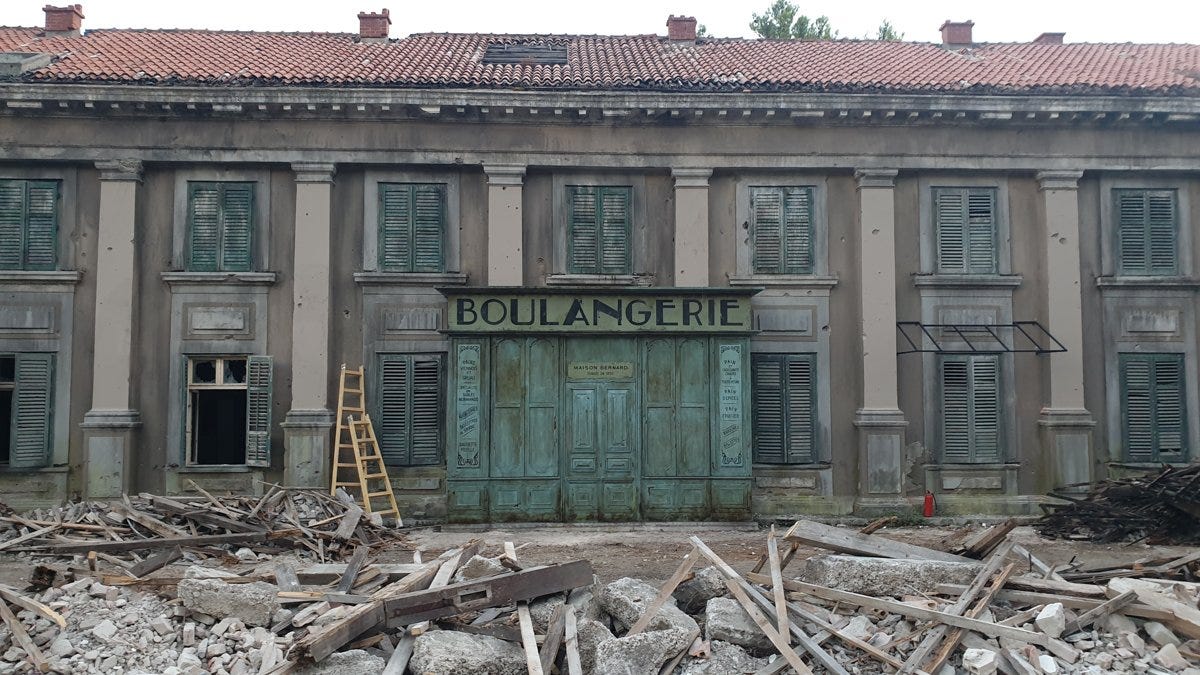
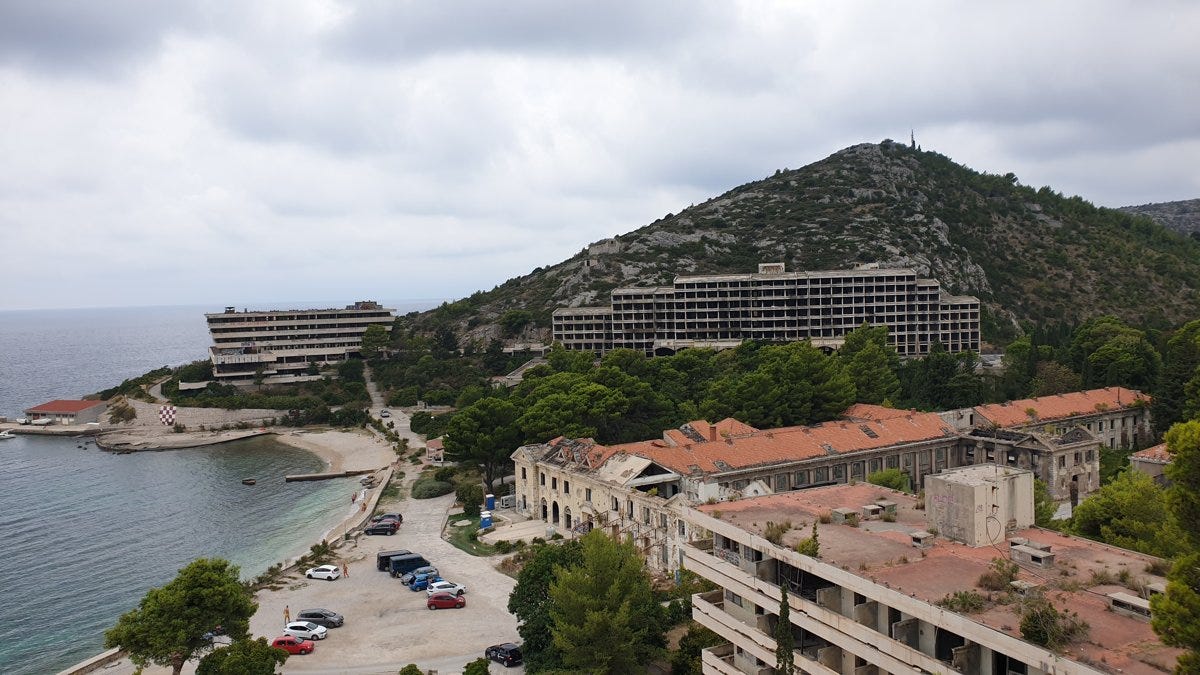
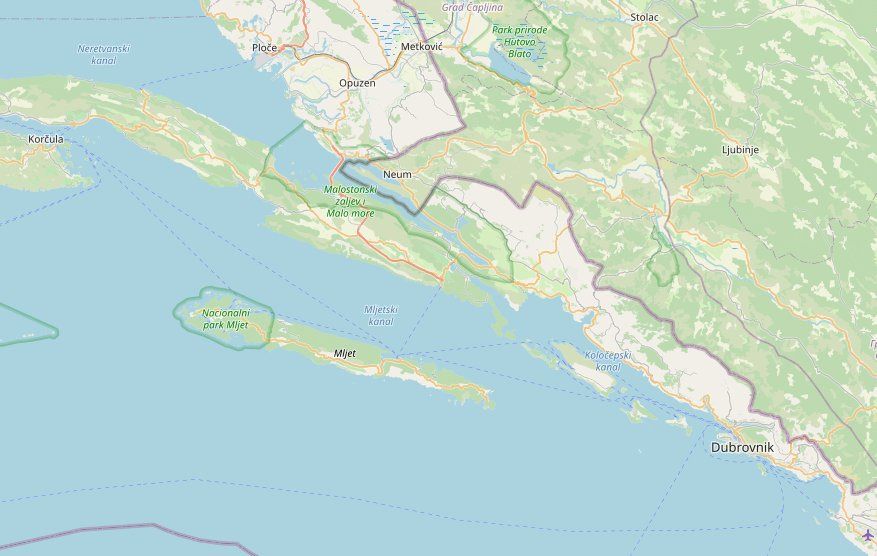
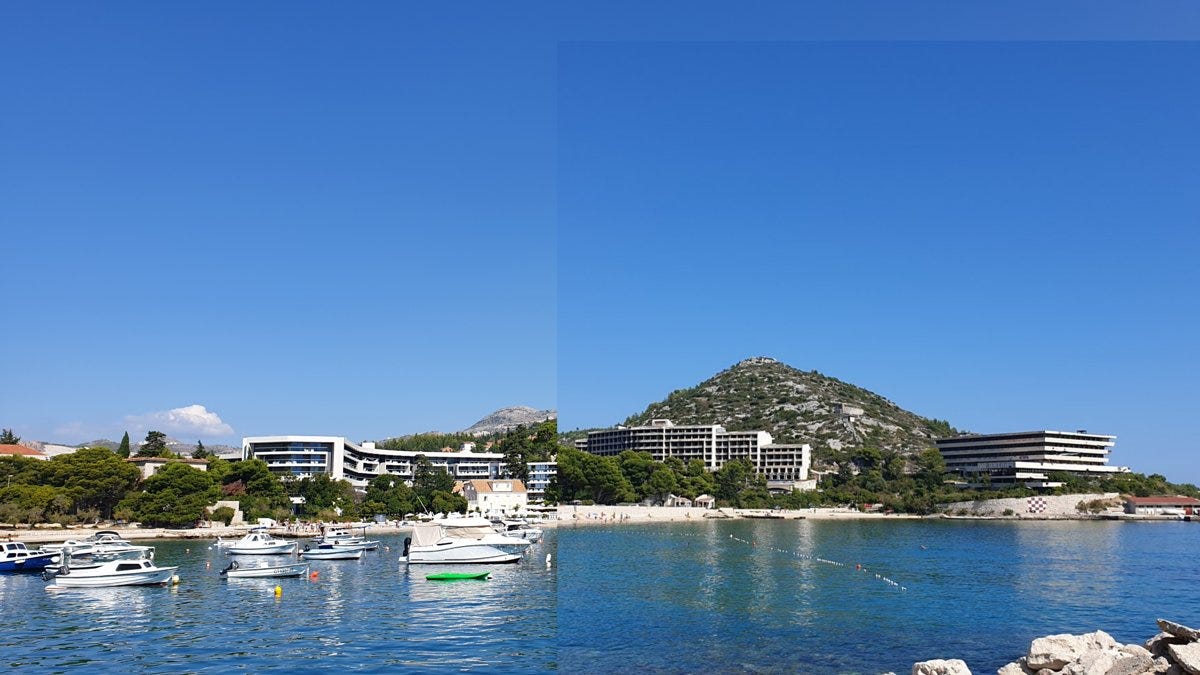
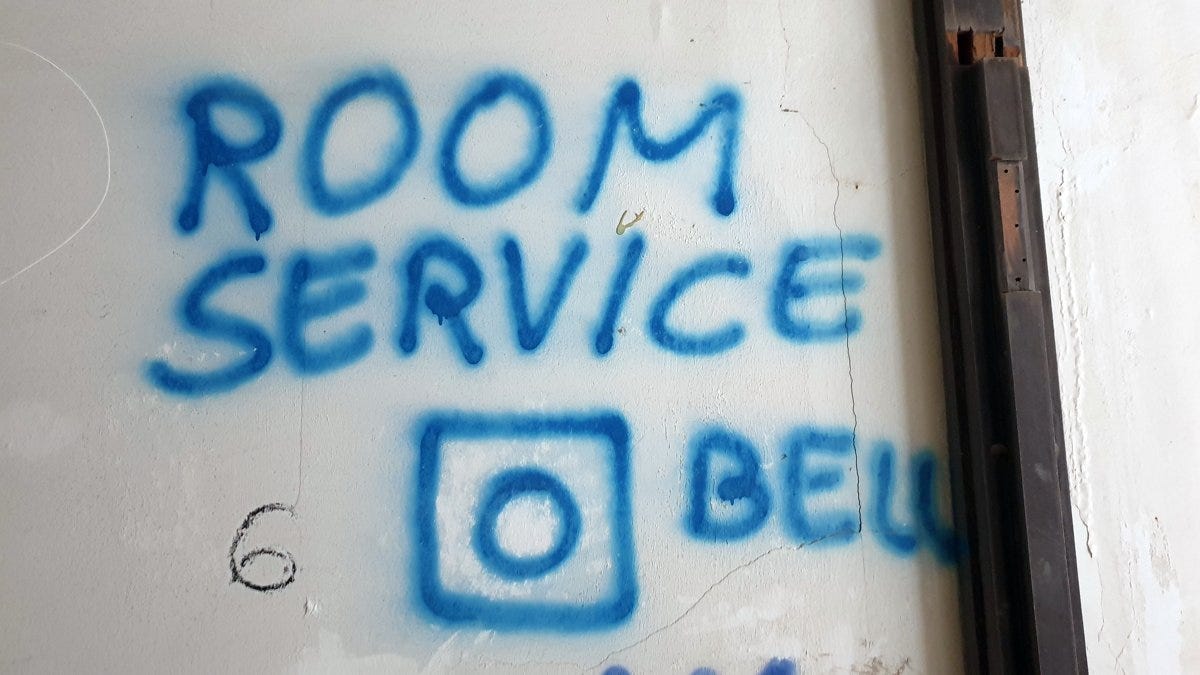
Loved it! I’m from Trieste and these stories about our sea fascinate me.
Nice ending on Italian food
🤣🤣🤣❤️🇮🇹🍝🍕🥖